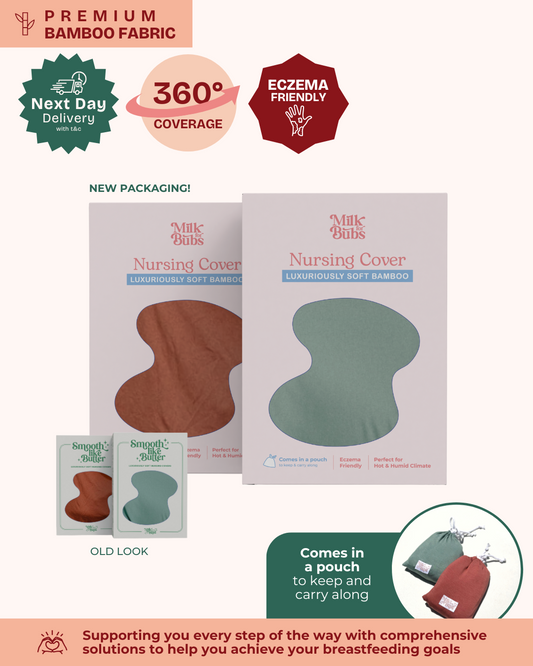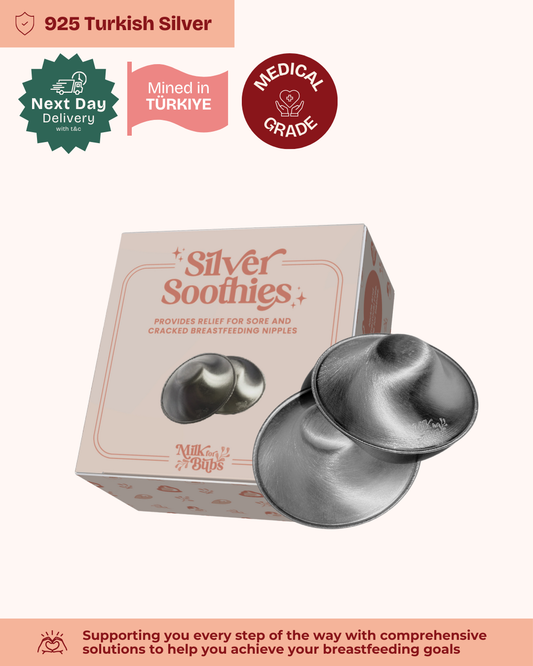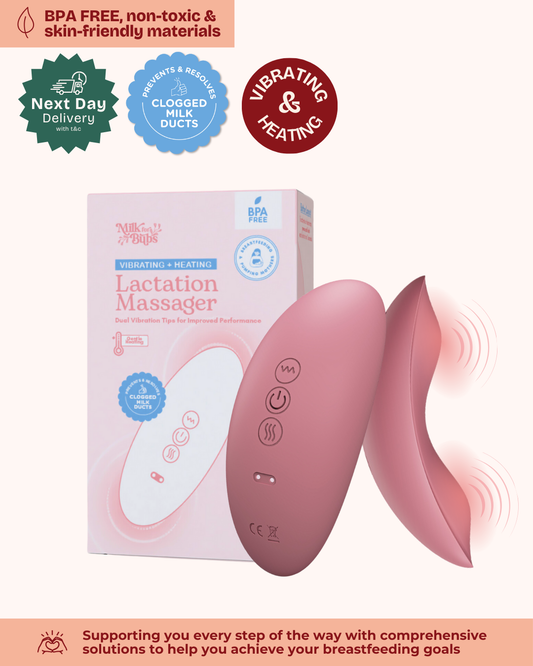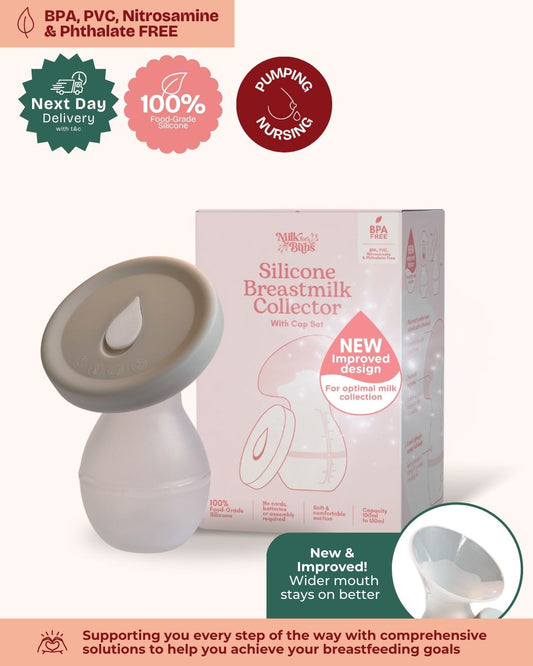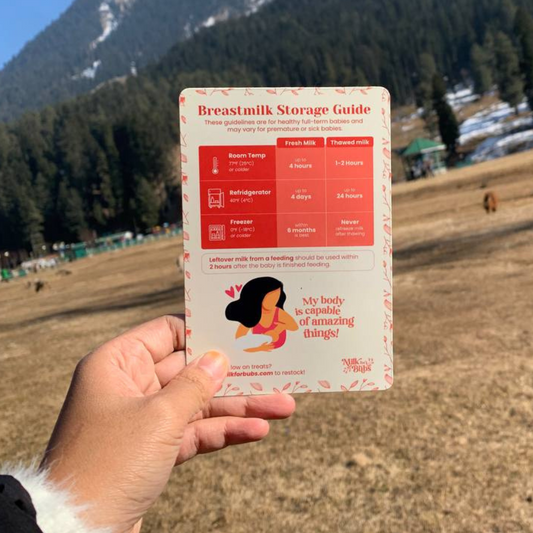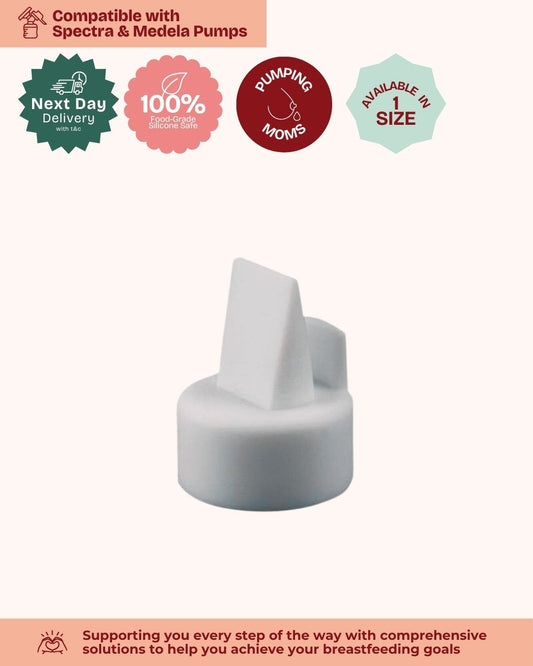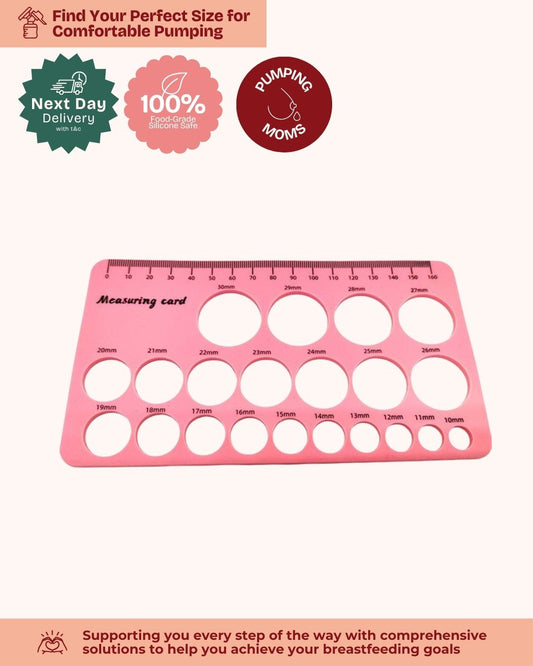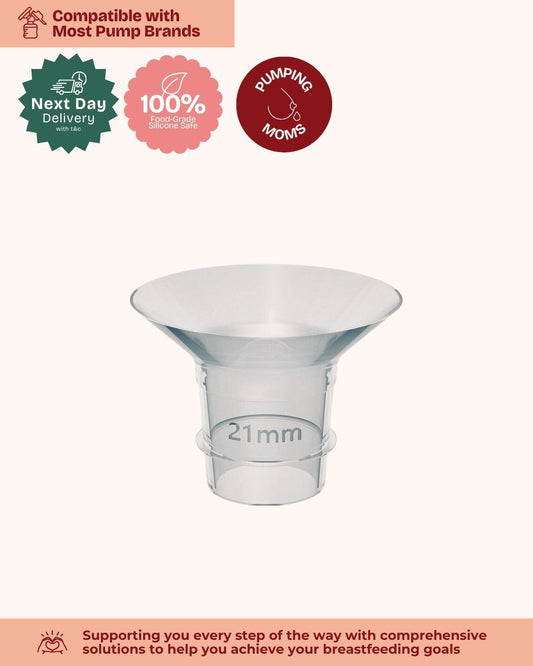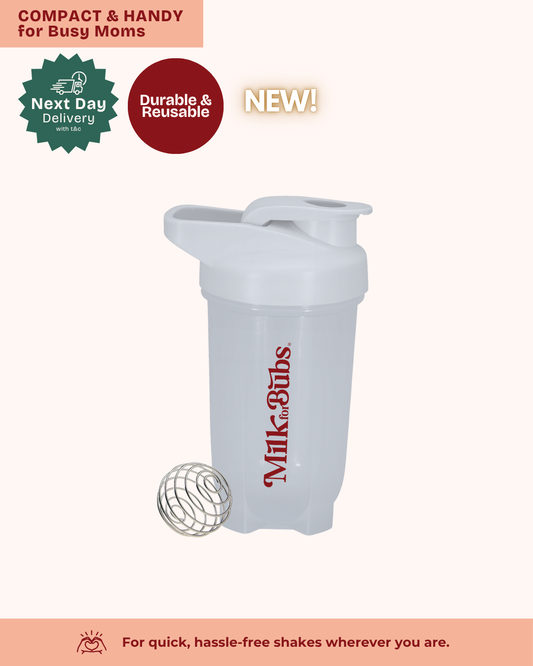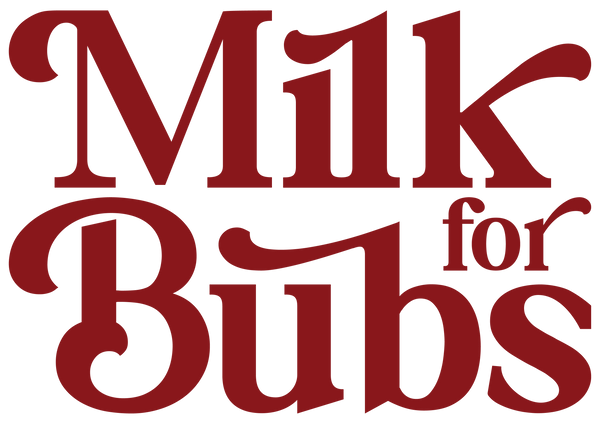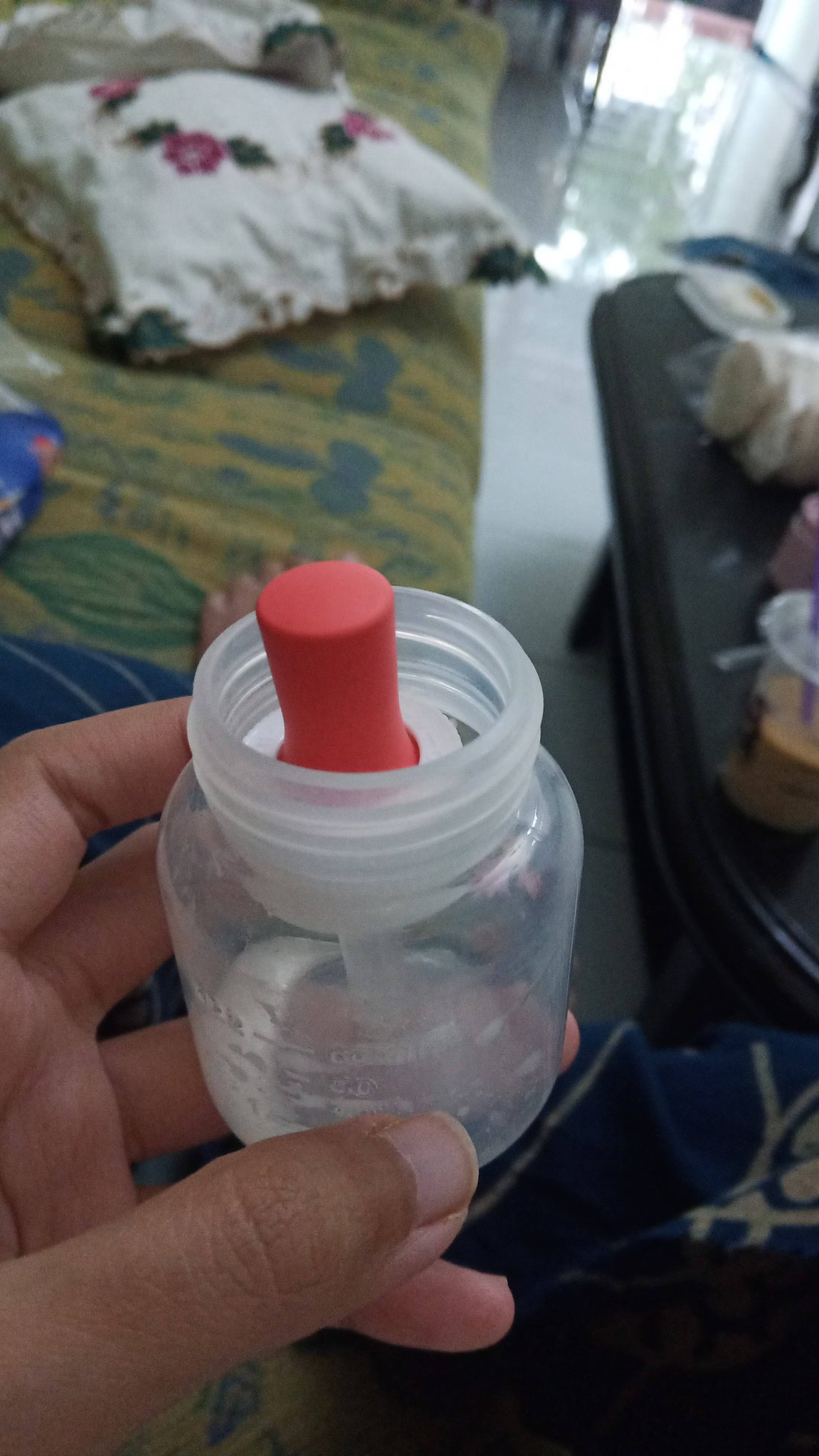When I started diving into this topic, I found something that honestly made me pause.
So many moms are searching about breastfeeding with PCOS, endometriosis, or thyroid conditions, but barely anyone is talking about it. Not on social media, not in most baby classes, not even in support groups unless someone brings it up first.
And I get why. Words like hormonal disorder or autoimmune already sound scary when you’re just trying to grow or feed your baby. Whether you’re a new mom, planning for pregnancy, or somewhere in between, the idea that something in your body might “get in the way” of breastfeeding can feel... heavy.
I’ve seen it firsthand.
My sister in law was diagnosed with PCOS early last year, and I still remember the look on her face when she heard the words “may impact fertility.” That alone shook her.
And one of my aunts? She has endometriosis. Her period pain was so intense, she once fainted. It wasn’t just uncomfortable. It took over her life.
So let’s talk about this. Gently, honestly, and without pressure. Just mom to mom.
Breastfeeding with PCOS
PCOS (polycystic ovary syndrome) is a hormonal imbalance that can affect ovulation, insulin sensitivity, and even how much milk-making tissue your body develoed during puberty. Because of this some moms may experience:
-
Delayed milk coming in (beyond 3–5 days postpartum)
-
Low or inconsistent supply
-
Needing more frequent feeding or pumping to build and maintain volume
But here’s what’s often left out of the conversation: PCOS doesn’t automatically mean you can’t breastfeed. It just means your body might need a bit more support, and that’s okay.
If you have PCOS, here are some gentle steps that may help:
-
Start stimulation early: If possible, begin hand expression within the first hour after birth, especially if you’re separated from baby. This early stimulation helps send strong signals to your body to start milk production.
-
Feed or pump often: Aim for every 2–3 hours in the early weeks. If baby is sleepy or unable to latch well, use a pump to keep the cycle going.

-
Use skin-to-skin contact frequently: It’s not just comforting, it actually helps boost oxytocin, which is essential for milk let-down.
-
Consider galactagogues carefully: Some moms find support through galactagogue-rich foods (like oats, flaxseed, and brewer’s yeast), but supplements should be discussed with a lactation consultant or healthcare provider.
-
Watch blood sugar: Since insulin resistance is common with PCOS, eating regular, balanced meals with complex carbs and healthy fats can help stabilize energy and hormone response.
-
Check your thyroid: PCOS and thyroid disorders often overlap. If your supply is low despite trying everything, ask to check your TSH and prolactin levels: it could reveal something important.
And most of all: get help early if you can. A lactation consultant who understands hormonal challenges can help tailor support based on your body, not just a textbook.
There’s no one-size-fits-all path here.
Some moms breastfeed exclusively, some mix with pumping or formula, and others find their rhythm somewhere in between. All of those are valid. What matters is finding what works for you and your baby, without shame.
Thyroid Conditions & Milk Supply
An underactive thyroid (hypothyroidism) or autoimmune thyroid disease (like Hashimoto’s) can quietly affect your breastfeeding experience.
It’s not always obvious at first, but some moms notice signs like:
-
Low or inconsistent milk output
-
Fatigue that feels deeper than just “new mom tired”
-
Difficulty with let-down, even when baby is latched or you’re pumping
These symptoms can be easy to brush off (especially in the chaos of early motherhood) but if something doesn’t feel right, it’s worth looking into.
The reassuring part? Most thyroid medications (like levothyroxine) are safe to take while breastfeeding. In fact, getting your thyroid levels back into a healthy range often helps your energy return and your milk supply improve.
If you’ve had thyroid issues before (or even if you haven’t) here’s what can help:
-
Ask for testing postpartum: TSH levels can shift after birth, even if they were normal during pregnancy. If your energy is off or your supply won’t build despite frequent feeding, a simple blood test can reveal what’s going on.
-
Take meds consistently: Thyroid meds are most effective when taken at the same time each day, ideally away from food or supplements that interfere with absorption (like iron or calcium).
-
Track how you feel, not just numbers: If your labs come back "normal" but your energy and milk are still low, push for a closer look. You know your body best.
-
Be patient with supply-building: If thyroid levels were off early on, it may take a few weeks to recover once treatment starts. Use this time to rest, hydrate, and pump or feed consistently to keep stimulation going.
 Sometimes the hardest part is just trusting that you’re not making it up and you’re not.
Sometimes the hardest part is just trusting that you’re not making it up and you’re not.
Your body is doing a lot. And you deserve care that sees you, not just your lab results.
Endometriosis and Postpartum Recovery
Endometriosis doesn’t magically go away after birth.
Some moms feel a bit of relief while exclusively breastfeeding mainly because estrogen levels stay low, which can temporarily calm some of the inflammation. But that’s not always the case for everyone.
Other moms may still experience:
-
Lingering pelvic pain or discomfort
-
Deep fatigue, especially during hormonal dips
-
Flare-ups as their cycle starts to return (even while still nursing)
And once weaning begins or periods return, the old symptoms can come back more strongly than expected.
If you’re a mom with endo, here’s what can help you get through the early months:
-
Give yourself permission to slow down: Your body is recovering from more than just birth. It’s managing a chronic condition too. That’s not nothing.
-
Track patterns: If you notice pain returning during weaning or around your period, you’re not imagining it. Hormonal changes can trigger symptoms, and recognizing those patterns helps you plan care ahead.
-
Talk to a provider who understands endo: You might not need treatment right away, but it’s worth having a doctor who’s familiar with postpartum endometriosis to help you navigate the months ahead.
-
Know that fatigue isn’t weakness: If breastfeeding feels more draining for you than it does for others, that doesn’t mean you’re doing it wrong. It just means your body is handling more than most.
You’re not doing “less” by needing breaks.
You’re doing what’s needed; with strength, patience, and a lot of quiet resilience.
A Few Things I Wish More Moms Knew
-
You’re not failing if it’s hard. These conditions can impact milk supply, but they don’t define how much love you pour into your baby.

-
Support matters more than a perfect plan. Get help early: from lactation experts, doctors, or other moms who get it.
-
Combo-feeding, pumping, or stopping early are not signs of weakness. They’re signs of adaptability. That’s powerful.
Final Thoughts
If you're a mom dealing with PCOS, endometriosis, or thyroid issues while trying to breastfeed, I just want to say:
I see you.
Maybe you’ve been doing all the “right” things and still feel like it’s not enough.
Maybe you’re tired of wondering if your body is working against you.
Maybe you’ve cried quietly after another pumping session that didn’t go the way you hoped.
You’re not alone. And none of this makes you less of a mom.
Your body might need more time, more help, or a different plan. That doesn’t make it broken.
Your effort: every feed, every ounce, every adjustment you make, is real. It’s love in action.
And even if your journey doesn’t look how you pictured it, it’s still yours.
Still valid. Still powerful. Still worth honoring.
So please be kind to yourself. You’re doing more than enough.
- Fathi
Resident Writer @ Milkforbubs
Further Reading
If you want to explore more, these articles offer helpful, well-researched insights:

![[Bundle of 5] Disposable Milk Storage Bags with Storage Guidelines](http://milkforbubs.com/cdn/shop/files/IGP_Milk_Bag_Storage_Collaterals_1.png?v=1767068391&width=533)
